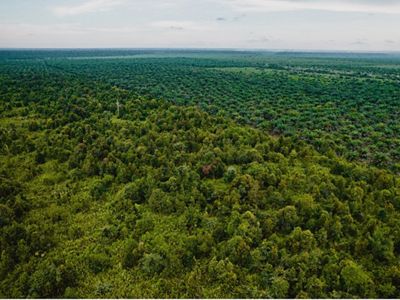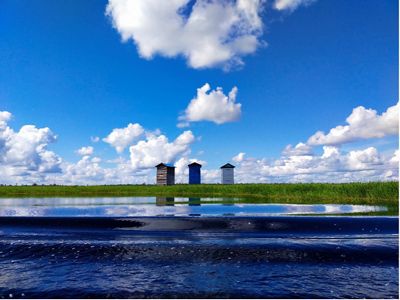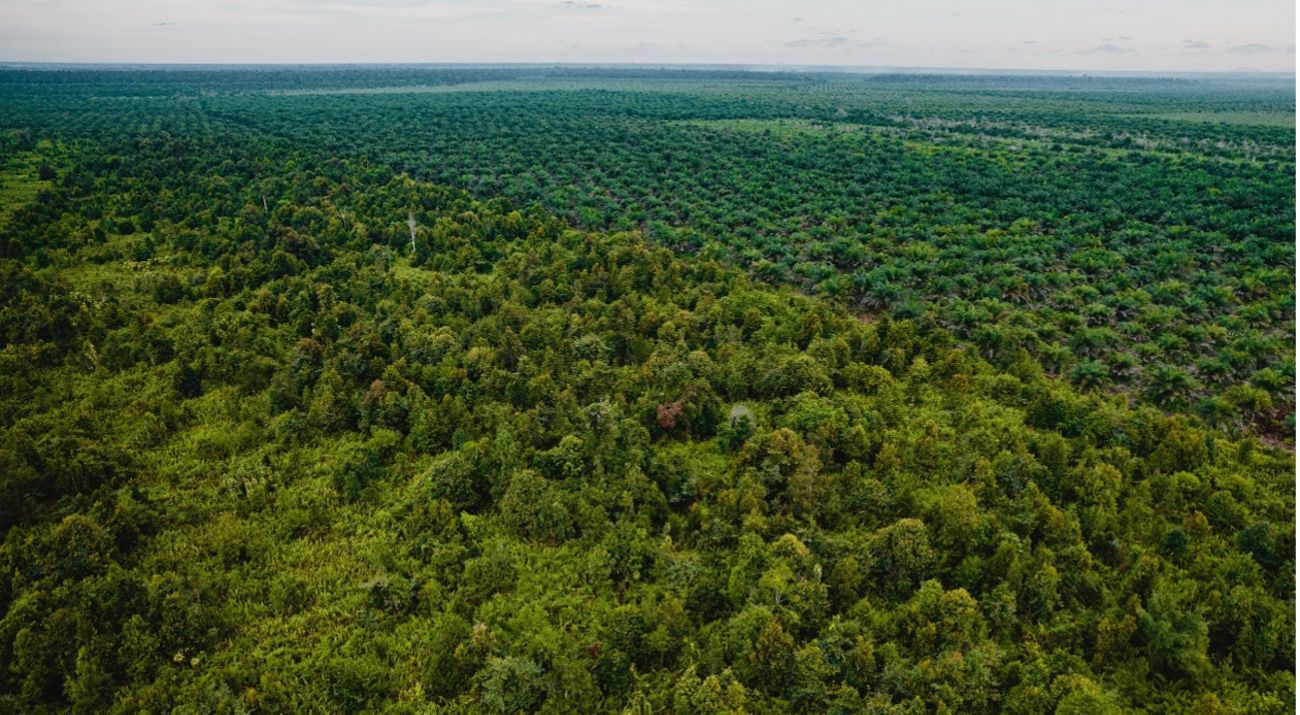Media Contacts
-
Retno Sari
Content and Publication Specialist YKAN
Yayasan Konservasi Alam Nusantara
Email: retno.dianingsari@ykan.or.id
Every 2 February, the international world commemorates Wetlands Day; this year's theme is Wetlands and Prosperity. Wetlands have an important role as the earth's kidneys, which can purify water, protect beaches, and store carbon. The value of environmental services is what can improve human welfare.
Indonesia is one of the countries that have complete types of wetland ecosystems, such as peatlands, mangroves, riparian areas, swamps, and rice fields. With 13.4 million hectares, Indonesia owns the largest area of tropical peat land in the world. However, currently, there is no verified data on how much area has been degraded and needs immediate restoration.

Throughout 2023, BRIN, the Ministry of Environment and Forestry, Yayasan KOnservasi Alam Nusantara (YKAN), and The Nature Conservancy will conduct biophysical analysis to determine the potential for extensive peat restoration areas throughout Indonesia. "The results of our study show that we have the potential to restore 6 million hectares of degraded peatlands. "It is hoped that the results of this research will become recommendations for policymakers to strengthen peat restoration regulations more effectively," said Nurul Silva Lestari, Researcher at the Ecology and Ethnobiology Research Center of the National Research and Innovation Agency (BRIN), as quoted in commemoration of World Wetlands Day, Friday 2 February 2024.
The study results show that half of these six million lands are in plantation and forestry concession areas. The priority areas with peatlands that must be restored in sequence are Riau Province (2.4 million ha), Central Kalimantan Province (1 million ha), and South Sumatra Province (0.9 million ha). The rest are spread from Kalimantan, Sumatra, and Papua. This joint research was published in the Journal of Restoration Ecology titled "Opportunities and risk management of peat restoration in Indonesia: Lessons learned from peat restoration actors" in November 2023.
So far, the authority to restore wetlands has been in the hands of Badan Restorasi Gambut dan Mangrove (BRGM). This institution has a mandate to restore 1.2 million hectares of peatland. Peatland restoration models implemented in Indonesia include rewetting, replanting, and revitalizing community livelihoods that support restoration.
From the results of existing data analysis studies, the priority for restoration is burnt land. Restoration must be done to prevent repeated fires and slow peat degradation. On damaged peatlands located in concession areas, replanting (revegetation) is not possible because the land has been turned into plantations or plantation forests. A potential practice is peat water level management by constructing canal blocks. The restoration process also needs to consider the Peat Hydrological Unit (a peat ecosystem generally located between two rivers, the river and the sea or swamps). Land management in one KHG will mutually influence one region and another. "We provide restoration area options based on three main variables, namely the area of the canal network, fire scar areas, and land with critical status," said YKAN Senior Manager of Forestry Carbon and Climate Change Nisa Novita, who is part of the peatland restoration researchers.

The most significant issues that need to be considered in risk assessments in restoration still involve technical, management, and social issues. Nisa explained that these findings show that peat restoration actors must seriously highlight technical problems such as fire incidents and water levels in the dry and rainy seasons. Then, he continued, in the management context, restoration actors must collaborate to align their interconnected programs and the absence of a peat restoration program in the Regional Medium Term Development Plan. "Successful peatland restoration needs to be carried out collaboratively across sectors and regions," said Nisa.
The success of peat restoration will accelerate the achievement of Indonesia's climate commitment targets contained in the Nationally Determined Contribution (NDC) documents, especially in the forest and other land use sectors. Based on research by YKAN and partners, peat restoration has the potential to reduce greenhouse gas emissions by up to 172 million tons of CO2/year. The momentum of commemorating World Wetlands Day is likely to inspire a spirit of collaboration to protect and strive to restore wetlands, including peatlands, for the preservation of Indonesia.
Yayasan Konservasi Alam Nusantara (YKAN) is a scientific-based non-profit organization that has been present in Indonesia since 2014. With the mission of protecting lands and waters as life support systems, we provide innovative solutions to realize the harmony of nature and humans through effective natural resource management, prioritizing a non-confrontational approach, and building a network of partnerships with all stakeholders for a sustainable Indonesia. For more information, visit ykan.or.id.


